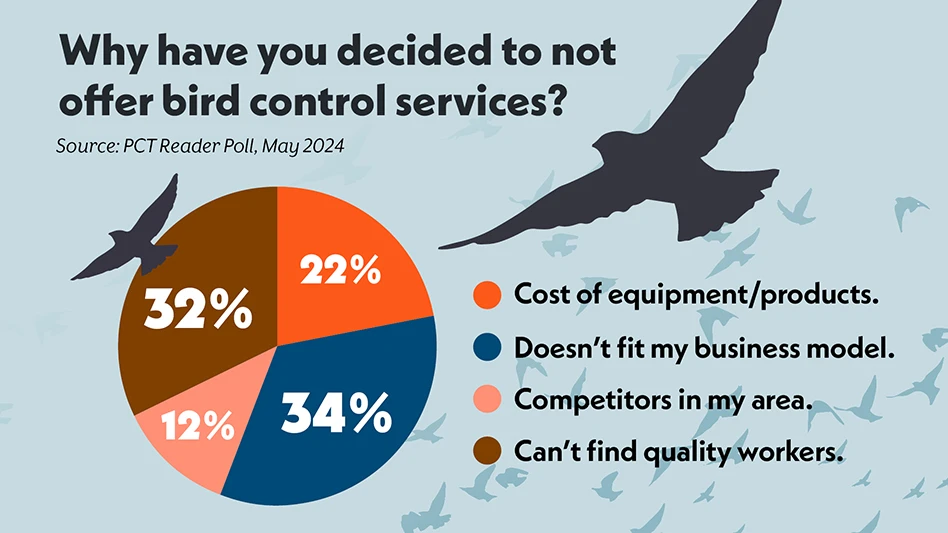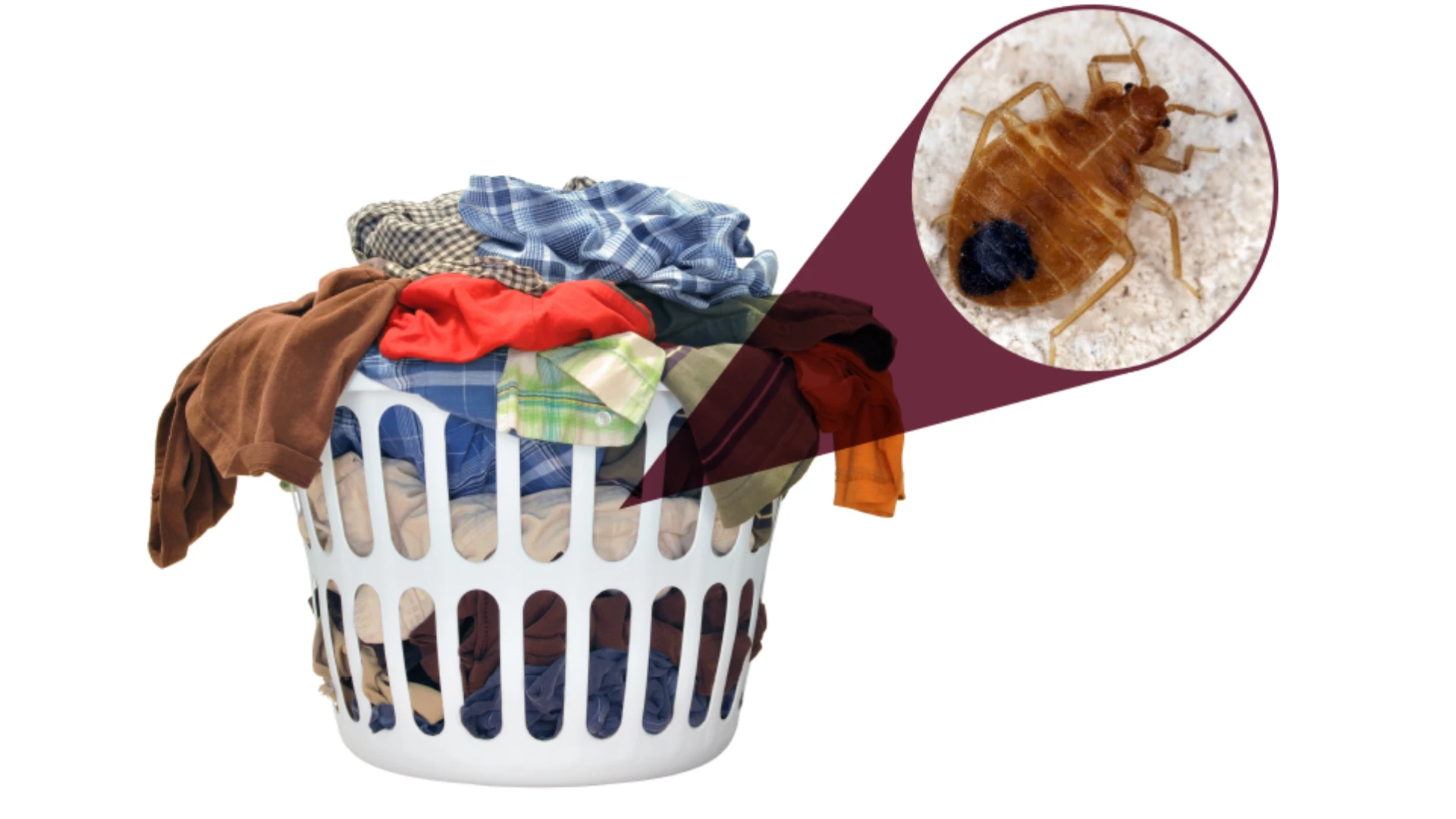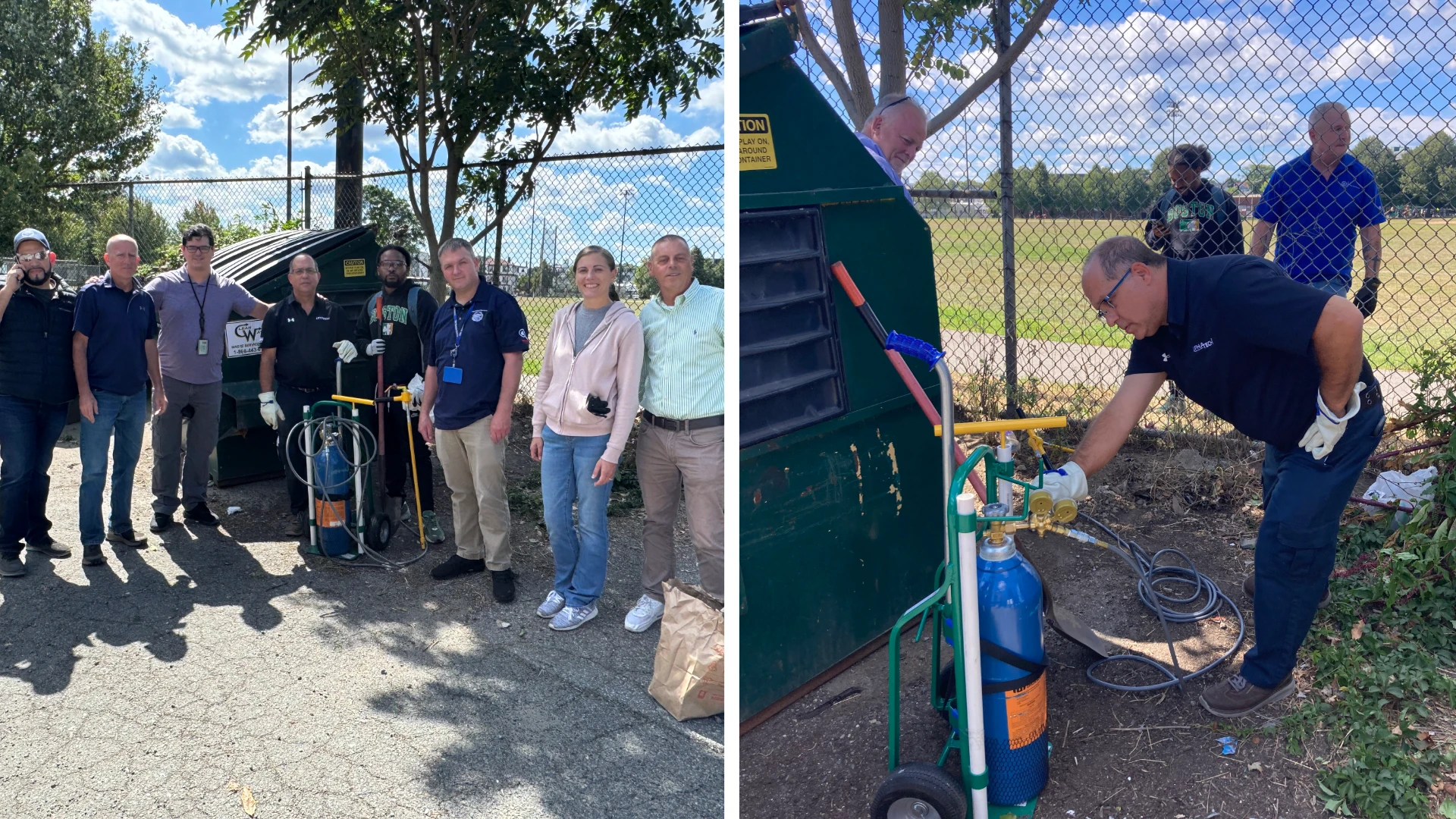
CLEVELAND, Ohio – Bird control is an in-demand service that can be lucrative if a company’s bird control program has been developed and is executed properly. But it’s not for everyone.
“Bird control work is specialized. If it's not for you, then it's not for you,” said Jack Ammerman, owner of Advanced Wildlife Control, Genesee Country, Mich. “Technicians have to be trained. Unlike pest control, there is no repeat schedule nor recurring work.”
Thirty-four percent of those who responded to PCT’s recent poll said they do not offer bird control because it “doesn’t fit my business model.”
Sam Tutton, owner Ecoskan Pest Solutions, San Bernadino, Calif., said for larger companies, profit margin is a major concern. “The cost of materials is definitely higher. The cost of labor can be much higher when subcontracted. If an install takes longer than expected due to unforeseen circumstances, then the profit margin drops with every extra hour on site,” said Tutton, who added that many companies pay a lower sales commission since the margin is lower and often a one-time service. “Each job is significantly different and can be challenging for most technicians.”
Shannon Sked, Western Fumigation, Sharon Hill, Pa., said that unlike general pest control services, bird control is a completely separate service. “It’s not recurring. There’s no routine billing and each job is estimated separately for equipment and labor; therefore, it’s very difficult to project what you will need as it’s not consistent (work load, customer demand, billing, etc.),” said Sked. Because of these projection challenges, bird control doesn’t fit well into a regular pest control company that routes jobs on a consistent basis based on recurring work for scheduling, Sked said.
Ammerman said that, as with any new endeavor, there is a learning curve when it comes to adding bird control. “Oftentimes, the hardest part of starting something new is finding the right resources to enable you to succeed,” he said. “I found that, when speaking to other companies while I was looking for guidance, no two jobs are alike, and some aren't even remotely similar. Learning what to do, and how to do it, seems to me to be the biggest challenge.”
Only thirty-two percent of poll respondents said “lack of market demand” was an issue. Christoper Harkins, account manager, Truly Nolen, Las Vegas, commented on PCT’s LinkedIn page: I have done over 100k to 250k of bird work a year in the last 5 years so it's certainly not a lack in demand. Now having people to do the work, that is the real challenge. It is much closer to construction than pest control.
Twenty-two percent said “cost of equipment/products” was their top bird control obstacle, while 12 percent said they “don’t like this type of work."
Participate in our latest reader poll: How is pest pressure being impacted by climate change in your region?
Latest from Pest Control Technology
- Rentokil Terminix Expanded in Key Markets with 2024 Acquisitions
- In Memoriam: Joe Cavender
- Certus Acquires Green Wave Pest Solutions
- Liphatech Adds Alex Blahnik to Technical Team
- Do the Right Sting: Stinging Insect Identification, Management, and Safety
- VAGA's 8th Annual Veterans Thanksgiving Appreciation Dinner
- Clark's Blair Smith on the Response to Increased Dengue Fever Cases in Southern California
- WSDA, USDA Announce Eradication of Northern Giant Hornet from U.S.





